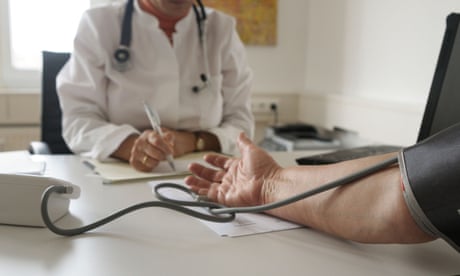Key Highlights :
1. Charging patients for using NHS services would be hugely expensive and complicated to implement and would not banish the health service’s problems.
2. Several senior Conservative politicians have proposed introducing fees for accessing NHS care and Rishi Sunak has previously backed £10 fines for people who miss a GP or hospital appointment.
3. Liz Truss, who was prime minister for 49 days last year, previously co-wrote a pamphlet in 2009 that advocated requiring people to pay to see a GP. However, the Institute for Government (IfG) has concluded that charges would be very difficult to administer, would raise only small sums for the NHS and would stop some patients seeking medical help.
4. Charges would also be unpopular and make the NHS more “transactional”, it said.
5. In January, Sajid Javid, who was the health secretary from June 2021 to July 2022, said charges for GP appointments and A&E visits were needed and should be part of a “hard-headed conversation” about how to help the NHS cope with the intense pressures on it.
6. But the politically unaligned IfG’s new analysis has identified an array of challenges that any government wishing to bring in charges would face.
7. The report’s author, Nicholas Timmins, found that so many people were likely to be exempt from new GP charges, and the system of collecting money would be so costly to run, that the revenue raised would make little difference to the NHS. Even though a £10 charge would in theory generate £3.5bn a year, exemptions based on the same groups who do not pay prescription charges would reduce that sum to at most £400m, he said.
8. Imposing a fee to see a GP surgery would force the government of the day to charge for attending A&E, to avoid people going there for free care for minor ailments.
9. Timmins concluded that advocates for NHS charges, which are also referred to as co-payments, had not answered the many practical questions that switching to such a system would involve.
10. Rightleaning thinktanks said charges were an idea worth considering. Dr Sean Phillips, the head of health and social care at Policy Exchange, said: “Expanding co-payments should be part of a conversation on how to sustainably finance health and care services.” However, he added: “Charging for GP appointments may reduce demand but those in need are most likely to be deterred. Patients will resurface more unwell in the most expensive parts of the NHS.” Kristian Niemietz, the head of political economy at the Institute of Economic Affairs, said he opposed Sunak’s idea of fining people who missed NHS appointments. But he backed charges for seeing a GP, visiting A&E or having

The National Health Service (NHS) in the UK is facing a number of challenges, and there have been calls from some senior Conservative politicians to introduce fees for accessing NHS care. However, a new report from the Institute for Government (IfG) has concluded that such a move would be hugely expensive and complicated to implement, and would not solve the problems facing the NHS.
The report's author, Nicholas Timmins, found that the revenue raised from charging patients for accessing NHS services would make only a small difference to the NHS. Even if a £10 charge was introduced, exemptions based on the same groups who do not pay prescription charges would reduce that sum to at most £400m. In addition, the system of collecting money would be so costly to run that it would not be worth it.
The IfG report also found that introducing charges would be unpopular and make the NHS more “transactional”, as it would stop some patients from seeking medical help. Research from the Health Foundation published in July found that seven in 10 voters believe that NHS charges will creep in over the next decade.
The Department of Health and Social Care has said that there are no plans to introduce any charges, and that the NHS will remain free at the point of use. However, right-leaning thinktanks have argued that expanding co-payments should be part of the conversation on how to sustainably finance health and care services.
Ultimately, the IfG report has concluded that introducing charges for NHS services would be unlikely to be transformative and there is little public appetite for them. It is clear that any government wishing to bring in charges would face a number of challenges, and that the sums raised would not be sufficient to solve the NHS's problems.

